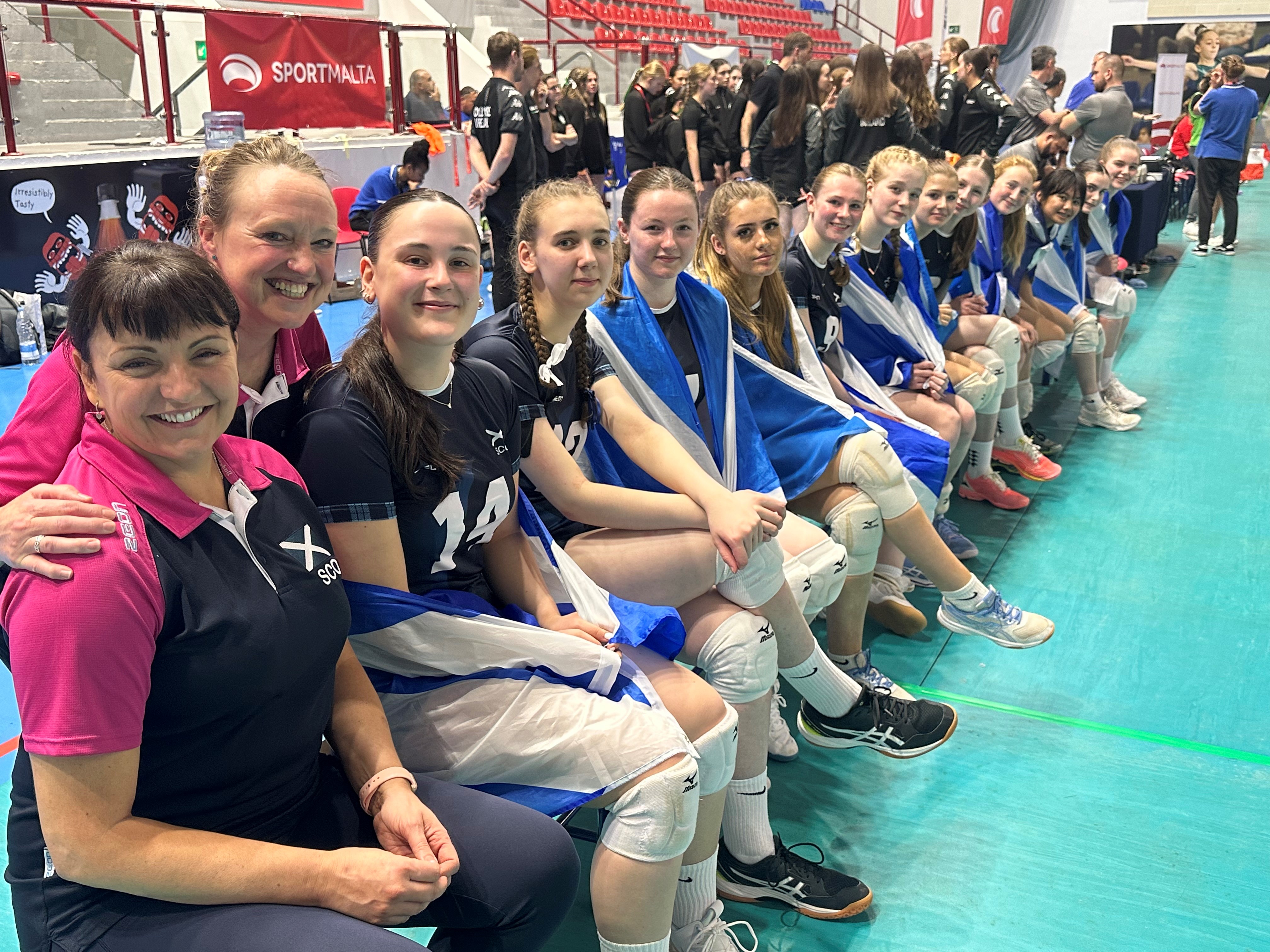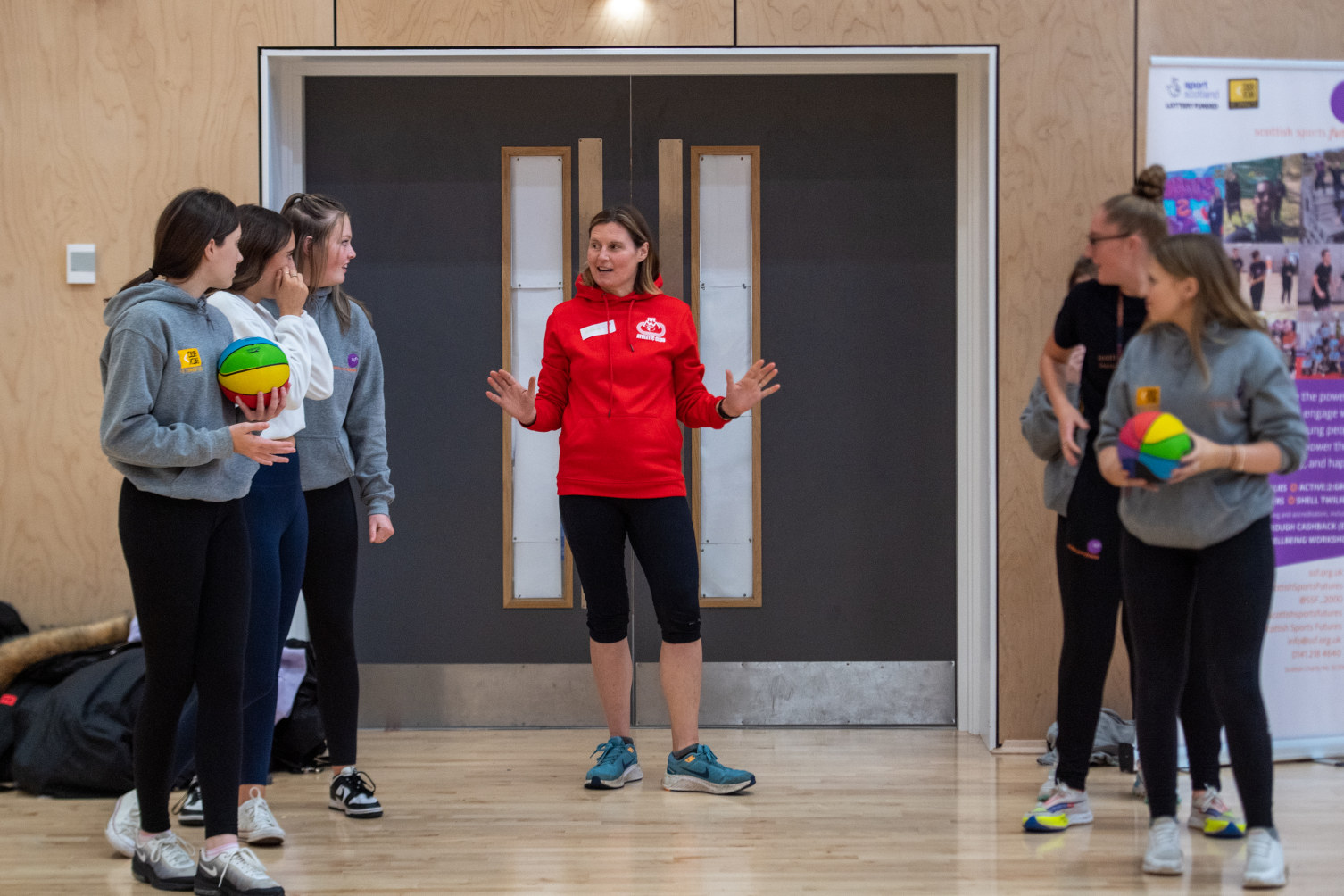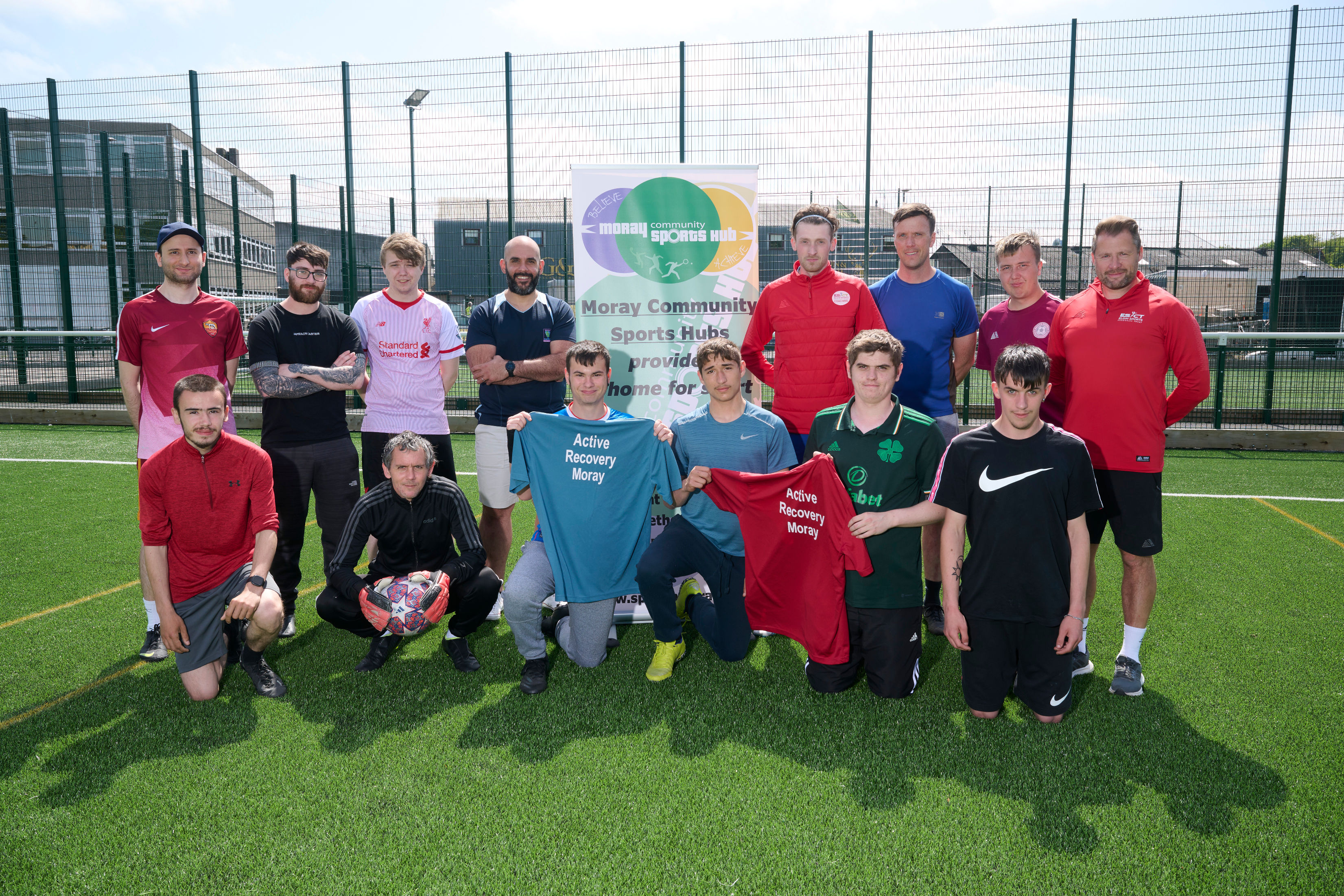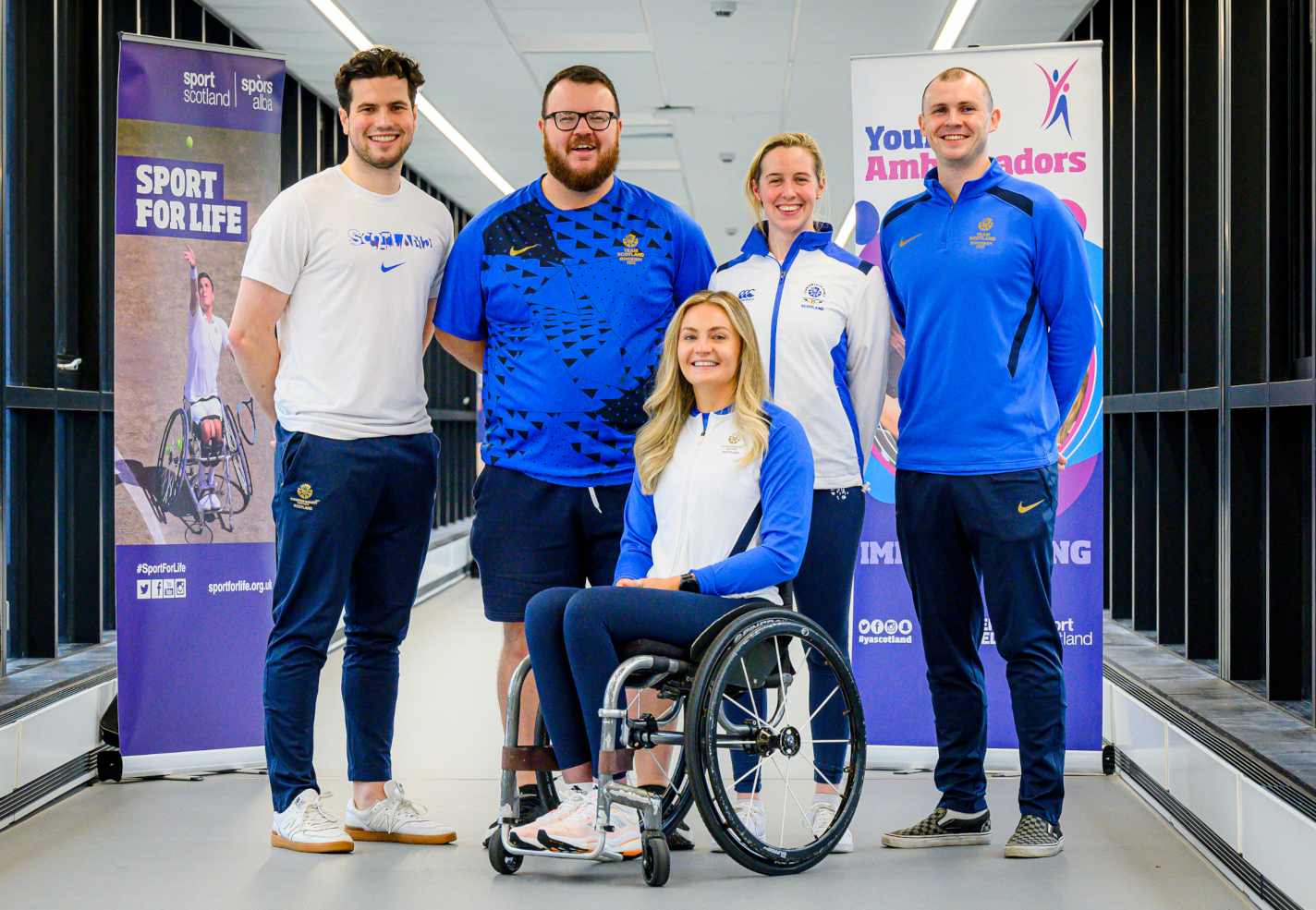Launched in late August last year, Scottish Volleyball’s Tartan Talent Pathway was designed to develop young volleyball athletes across the county and prepare them for National Team representation.
Targeting athletes born between 2004-2009, the initiative is made up of four stages: Regional Talent, Developing Talent, National Talent, and Performance Talent; the first of which sees Scottish Volleyball’s team of expert coaches head out to the north, east, and west regions to deliver sessions and identify promising talent.
Physical and mental development
Selected athletes then move onto the developmental stage where they receive sessions focussed on technical and tactical abilities, strength and conditioning, and sport psychology and team dynamics.

High Performance Coach and Coaching Manager at Volleyball Scotland, Ally Jack heads the programme. He said:
“The Developing Talent stage is all about supporting the athletes to build not just the physical, but also the mental foundation to excel on the court and in their overall athletic journey.”
Through the partnership between Scottish Volleyball and the University of the West of Scotland (UWS), Sports Psychology PhD student and lecturer in Sports Coaching and Development, Harry Warburton was invited to provide psychology support to the Tartan Talent athletes at this stage.
“I was really excited to be given the opportunity to support these players in the early stages of their journey,” he said.
Fostering positive team dynamics
For Harry, it is integral that the young athletes, some of whom will enter the programme not knowing any of their new teammates or coaches, are provided with the support and tools to get to know one another.
“This is a very novel situation for the athletes; it’s not every day that you get called up to represent your country,” he explained.
“So, when that does happen, there is a huge amount of pressure. It is therefore so important that athletes feel connected and able to express their feelings to those around them.”
During the planning stages, Harry and Ally agreed that it was integral to maximise the time athletes were able to spend with Harry across the development days. This meant that some of his sessions took place at the side of the court, in between training sessions and match play.
“In a normal training session or tournament, you will get a bit of chat between drills and games, but it isn’t usually the right setting for players to really get to know each other,” Ally explained.
“So, we were eager to utilise that time and get Harry in to chat with the athletes and create a space for them to really connect with one another.”
Opening up
In addition to these sessions, Harry set a challenge for each of the athletes to prepare a 5-minute talk on their volleyball journey, what the sport means to them, and any stories that would aid their teammates in getting to know them on a personal level. The athletes were given 2 weeks to prepare their talks which they then shared openly with the rest of their squad.
“Being able to sit in on those sessions was really special,” Harry told us.
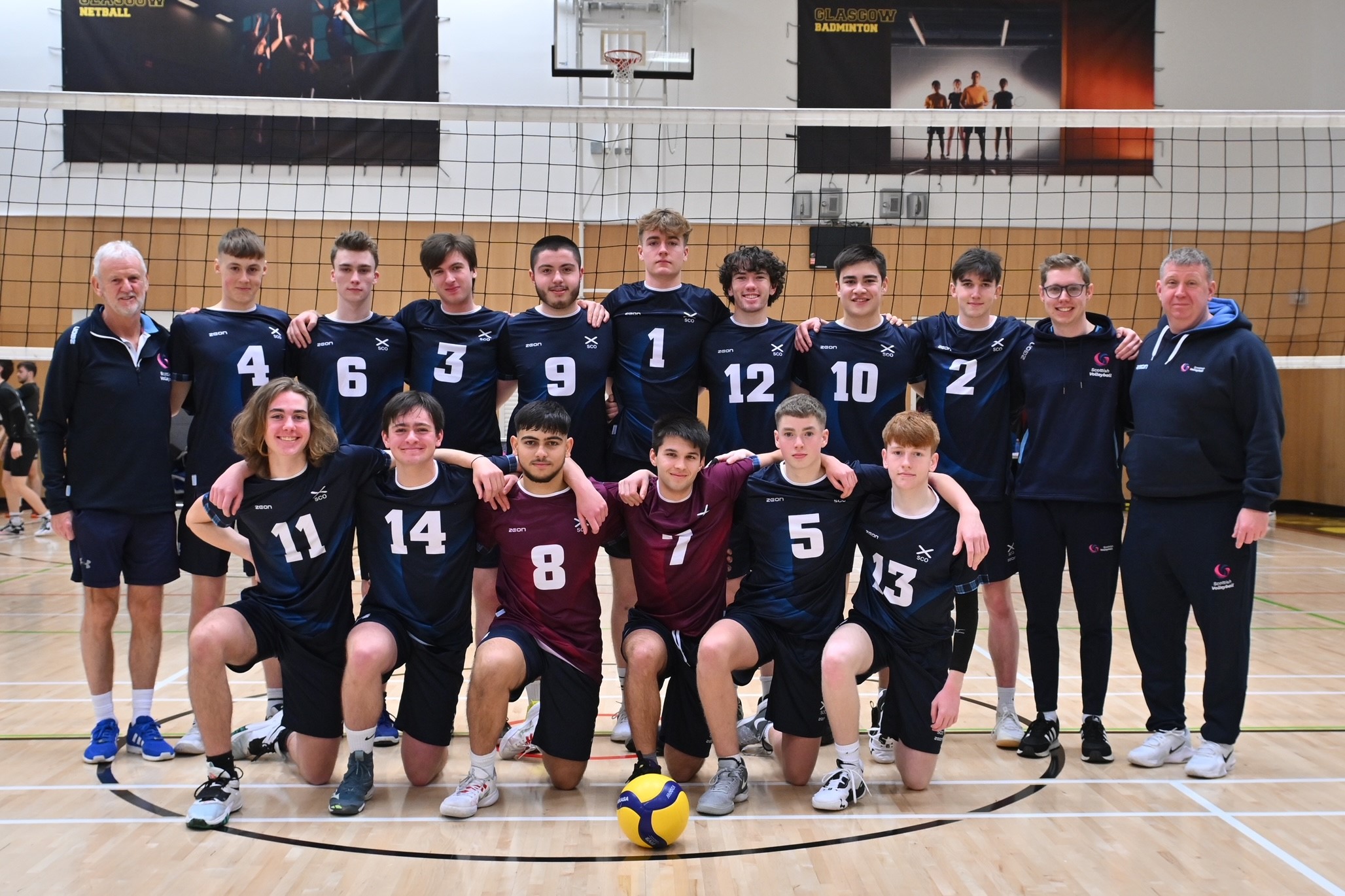
“The athletes had given a huge amount of thought to what they wanted to share with their teammates and the level of self-awareness in terms of the sacrifices they had made for their sport and all the challenges along the way was phenomenal.”
Expressing that the exercise had been an ‘incredibly enlightening experience’ Harry said that it had allowed the athletes to see their teammates in a new light and potentially shifted their perspective on who they were taking to the court with.
Ben Khalifa who is part of the U20 men’s squad said:
“Harry’s sessions were helpful in allowing us to understand each other on a deeper level. After our time with him, I feel more comfortable communicating openly with my teammates, helping me on both a competitive and social level.”
The lasting impact
By creating an environment where athletes feel psychologically safe and where they feel they can trust each other, the Tartan Talent Pathway is encouraging players to open up and be vulnerable with one another - where in the past, they may have seen this as a weakness.
Disappointments and setbacks are inevitable in competitive sport. But now, with the tools to communicate feelings and frustrations, athletes on the talent pathway will be better equipped to cope with pressurised situations.
And it is not just mentally that the pathway athletes are being prepared. As Harry explains, the support provided has the potential to also enhance the athletes’ performances on court.
“Because they now understand each other more and are communicating on a deeper level, they will be able to communicate better during training and matches and may well be able to anticipate each other’s actions,” he said.
“So, it is as much about their team dynamics off the court as it is how they can transfer what they have learned to their game and get the results they want.”
Find out more
· Visit the Scottish Volleyball website
· Read more about the Tartan Talent Pathway

